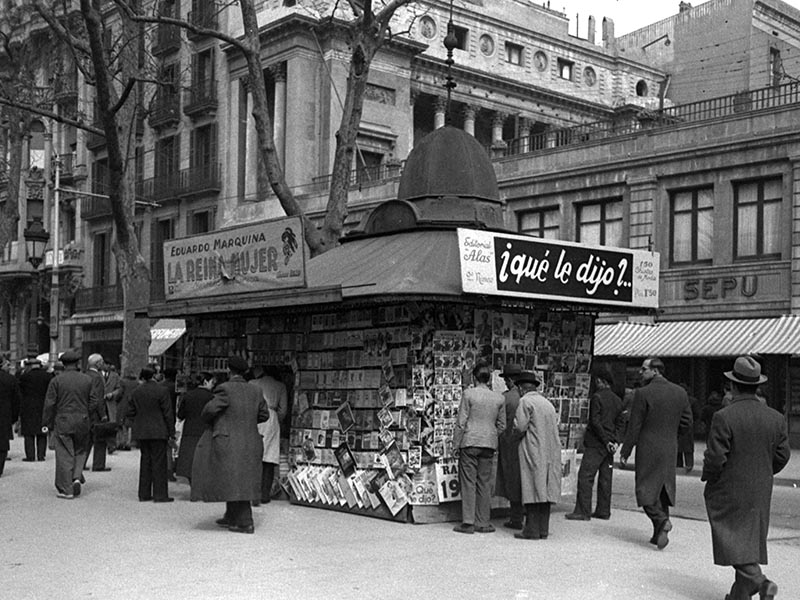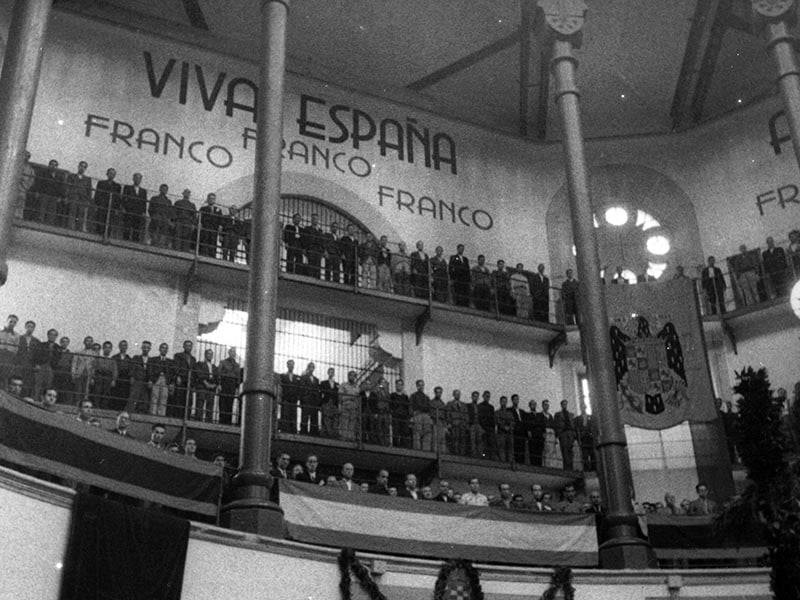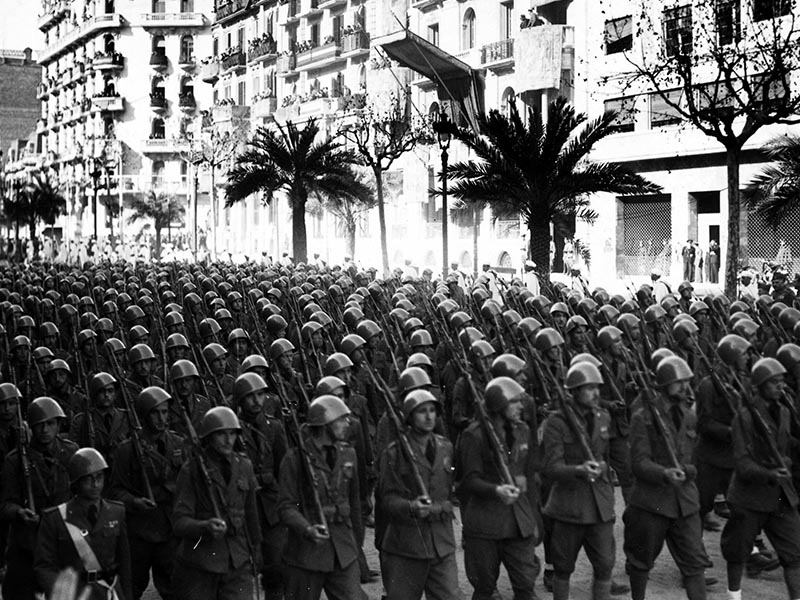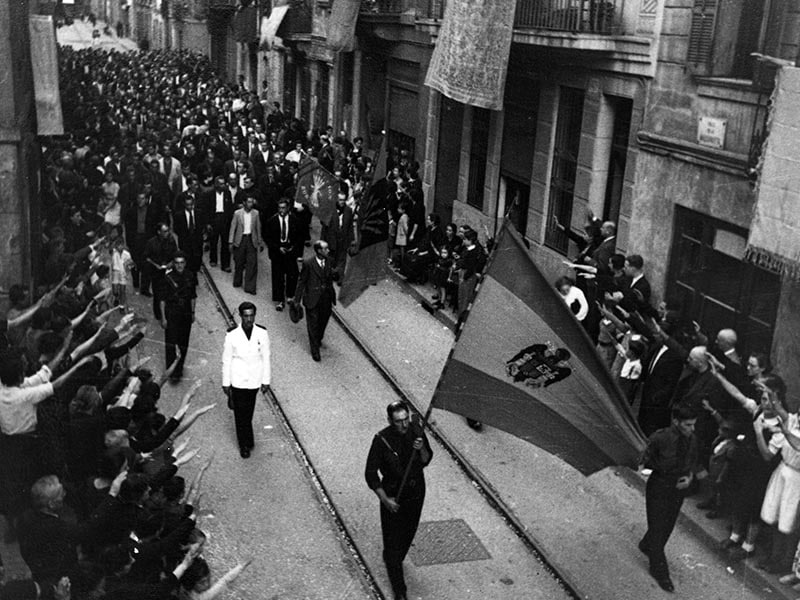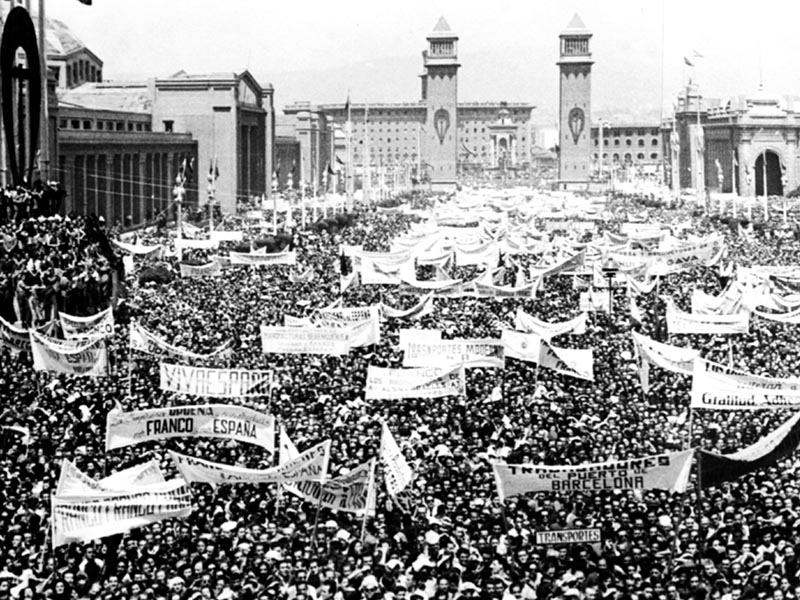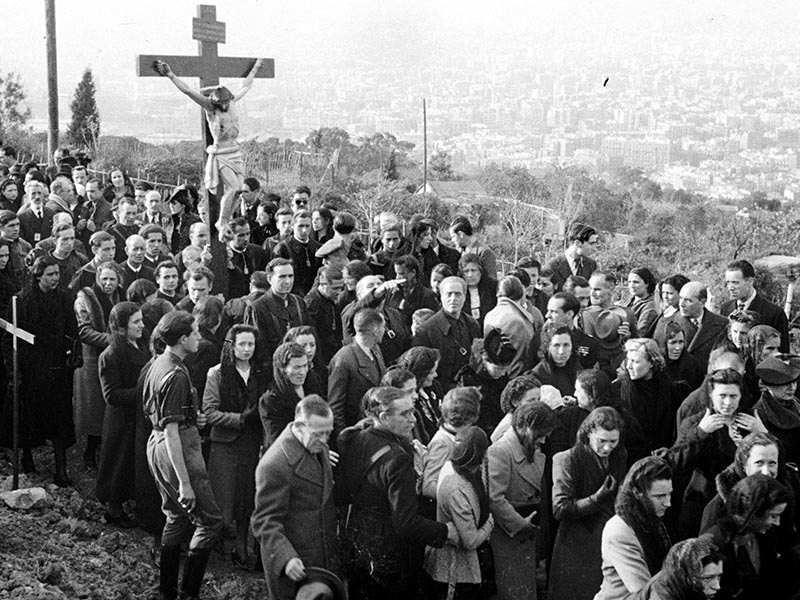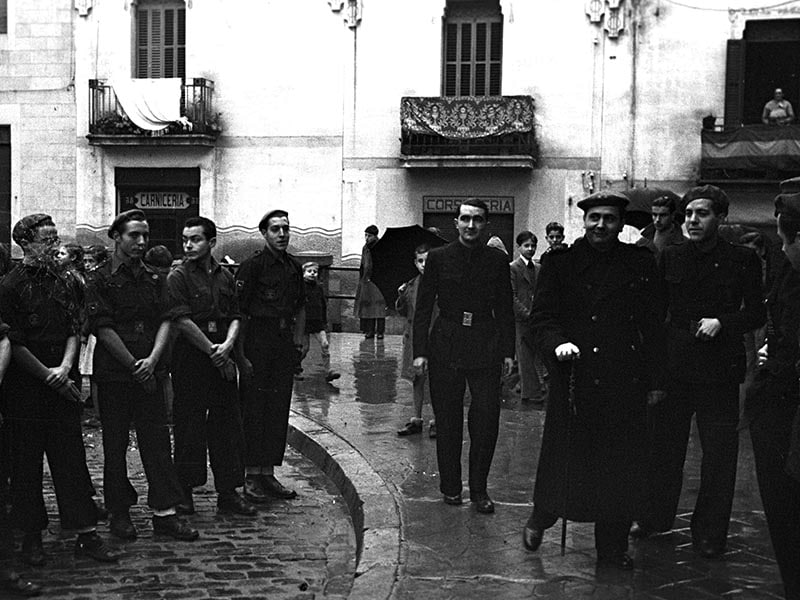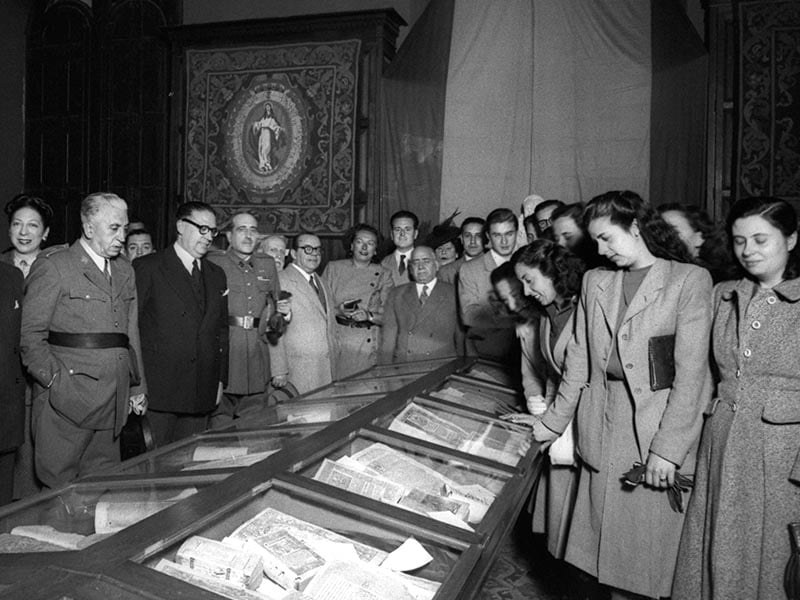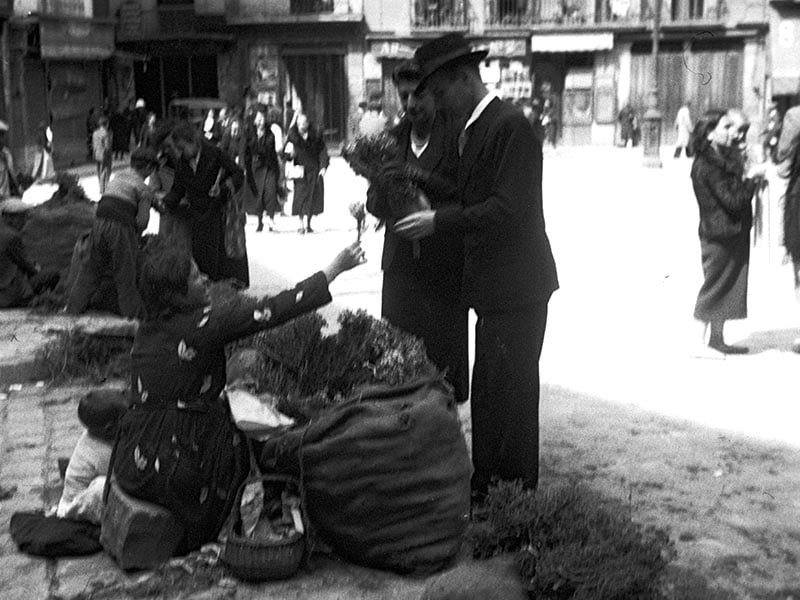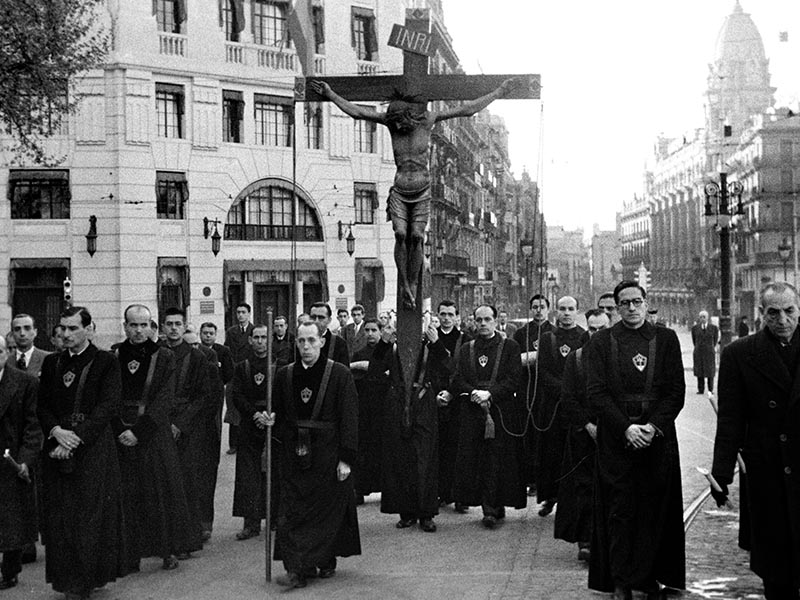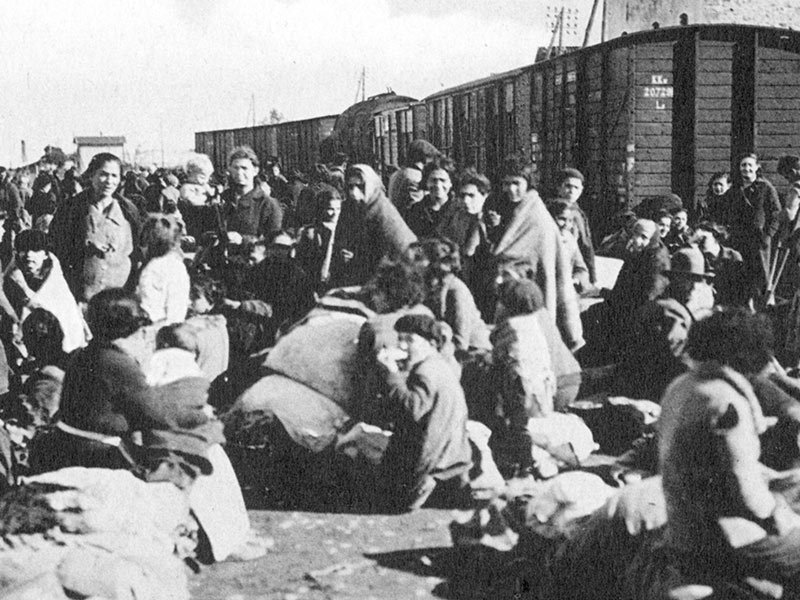Josep Maria Figueres and Josep Simo discuss the post-war exile experience.
When the war was ending my father was a frontier officer for the POUM. In Colera, to be specific. He had already received orders to cross the border. But first he did have to get across it. The elderly, women and children crossed on January 28 and 29, so he had to wait until February 5. Then my father sent a car to get my mother and me all the way to Colera. From Colera, there was a train to Portbou But before we could reach Portbou, fascist planes were bombing the train and the train had to scurry from tunnel to tunnel, taking cover, all the way to Portbou. When my mother and I reached Portbou, we were struck by great darkness. Soldiers had stowed away on the train. They’d gotten on, in spite of orders to wait. There was a terrible panic as people tried to find one another. For a while, my mother was even unable to find me. And then she…there’s this anecdote. From one of those wounded soldiers she was able to get a backpack containing jars of powdered milk which she kept. But next to her there was a woman, badly wounded. a poor woman, not in agony, but very sick. She left the milk to help this woman with the crossing. Meaning, we were, from Portbou to Cerbère, on foot. Then, in Cerbère, a train picked us up, which took the aged, women, and children to Poltiers, to a refugee shelter. My mother and I were only there from February, 1939 to September, 1939. Because the French authorities, upon seeing the German invasion of Poland, they assumed the Maginot line into France would be breached. Upon seeing the country’s difficult road ahead, they asked, practically demanded, that people return to Spain. So my mother sought assistance from the French and we returned to Spain.
